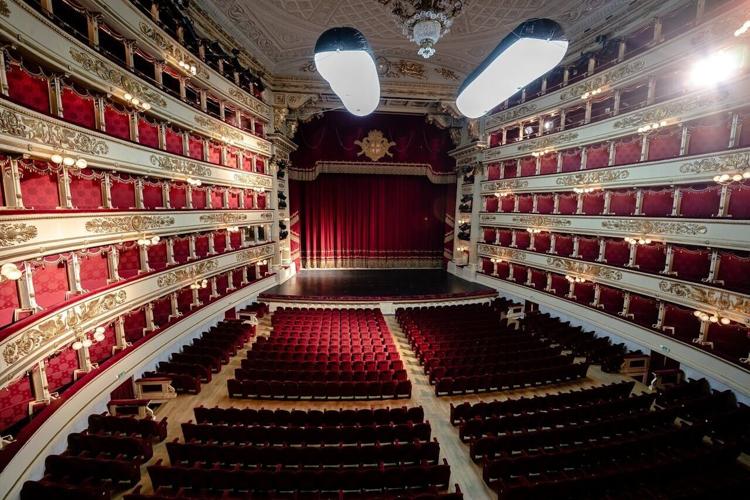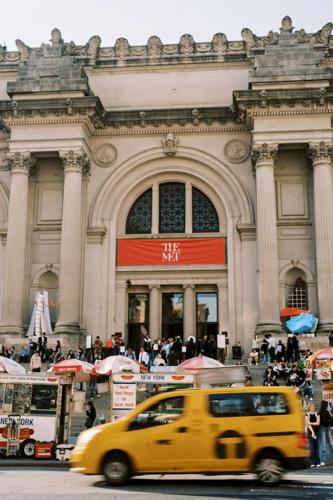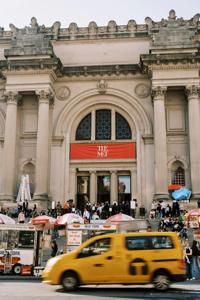
Photo by Alexandro D'Elia via Pexels
By Stephen Beech
Who goes to watch "highbrow" culture - such as ballet and opera - isn't simply down to wealth, according to new research.
Education and social connections matter more than income when it comes to participating in such cultural events, suggests the study.
Researchers wanted to find out why some people regularly attend the opera, visit art galleries, or go to classical music concerts while others rarely, if ever, do.
The findings, published in the Journal of the Association for Consumer Research, suggest the explanation goes far beyond money.
Researchers looked at around 7,500 people in the UK and the United States to understand what actually drives participation in so-called “highbrow” cultural activities.
Their findings reveal that a person’s education, vocabulary, and social networks are much stronger predictors of cultural engagement than how much is in their bank account.
Study co-author Dr. Joe Gladstone said: “In the UK, we found that cultural capital - things like education, knowledge, and linguistic ability - was the strongest predictor of who engages with highbrow culture.

Vlah Dumitru
“In the US, it was social capital - your networks, group memberships, and occupational status - that dominated.
"Economic capital mattered, but much less than you’d think.”
The findings challenge a long-held assumption that ticket prices or income are the main barriers keeping people out of museums, theaters, or concert halls.
While affordability does play a role, the study suggests that cultural participation is also shaped by how comfortable or connected people feel within those spaces.
Dr. Gladstone, an Assistant Professor of behavioral sciences and marketing at the University of California, San Diego, Rady School of Management, said: “Imagine being invited to an art opening where everyone seems to speak a language you don’t quite understand.
“Even if you could afford the ticket, you might not feel like you belong.
"That’s part of what we’re seeing - these are social and cultural boundaries, not just financial ones.”
Drawing on large-scale survey data from both the UK and US, Dr. Gladstone and co-author Dr. Silvia Bellezza used indicators of cultural, social, and economic capital to predict engagement in "highbrow" cultural experiences.
Cultural capital included measures such as education level and vocabulary tests; social capital captured network strength and occupational prestige; and economic capital accounted for income and wealth.

Georgia Sheridan
When they compared across countries, a "striking" pattern emerged.
In the UK - where class and education hierarchies remain more rigid, cultural capital dominated.
In the US - where social mobility and networking play a larger role - social capital took the lead.
Dr. Bellezza of Columbia Business School, New York, said: “If inclusive cultural spaces are the goal, reducing cost matters - but so too does equipping people with the cultural language and social connections to feel they belong."
The research team says their findings have implications for arts organizations, educators, and policymakers seeking to broaden access to cultural life.
They believe programs that focus on outreach, mentorship, and arts education - especially those that introduce young people to the language and norms of cultural institutions - may help close the gap more effectively than subsidies alone.
The researchers concluded that the results underscore how culture is both "deeply personal and profoundly social."
Dr. Gladstone added: “We often think of art and music as individual tastes.
“But in reality, they’re part of the social fabric - woven through our education, our friendships, and our sense of identity.”



















(0) comments
Welcome to the discussion.
Log In
Keep it Clean. Please avoid obscene, vulgar, lewd, racist or sexually-oriented language.
PLEASE TURN OFF YOUR CAPS LOCK.
Don't Threaten. Threats of harming another person will not be tolerated.
Be Truthful. Don't knowingly lie about anyone or anything.
Be Nice. No racism, sexism or any sort of -ism that is degrading to another person.
Be Proactive. Use the 'Report' link on each comment to let us know of abusive posts.
Share with Us. We'd love to hear eyewitness accounts, the history behind an article.